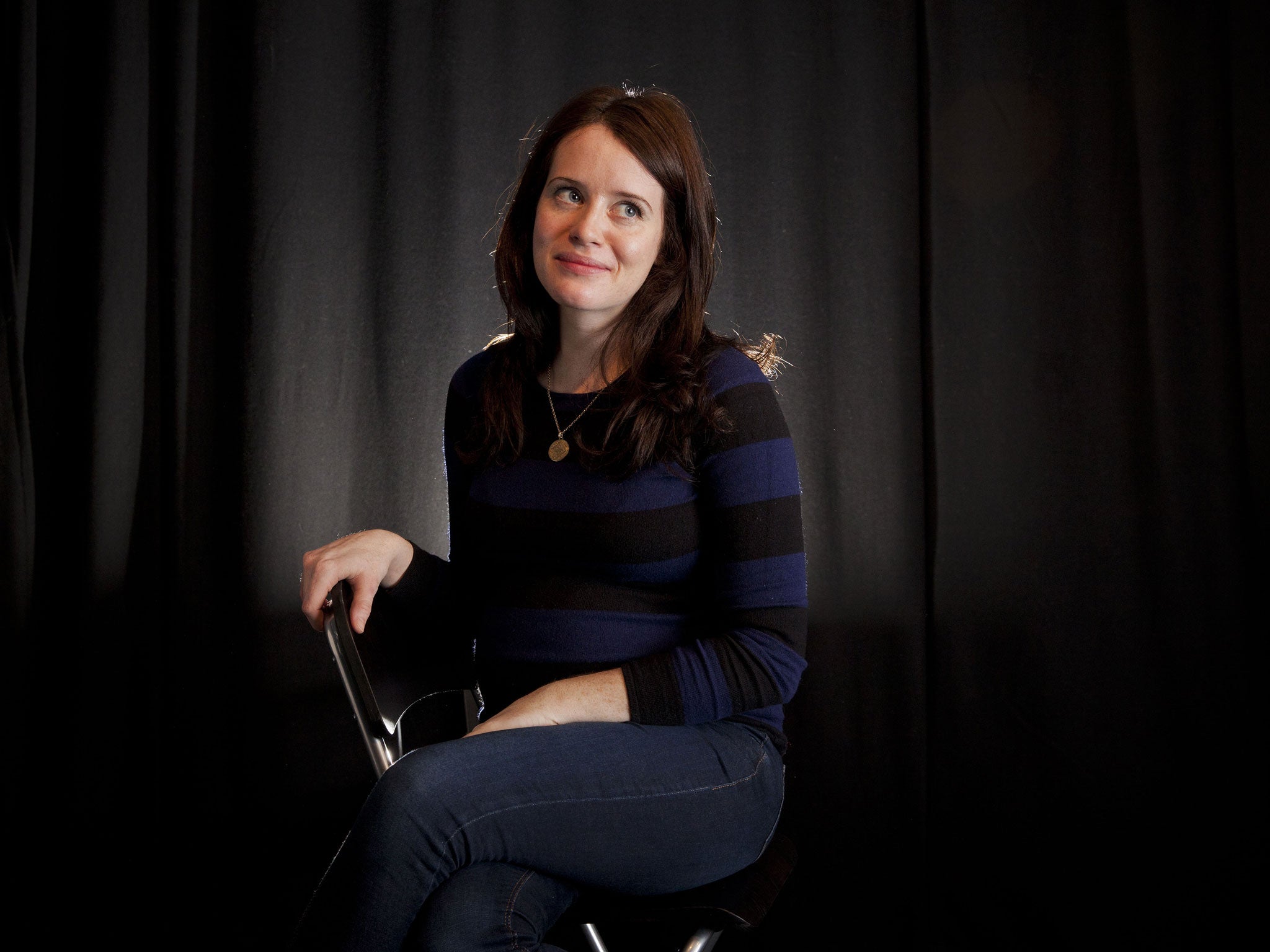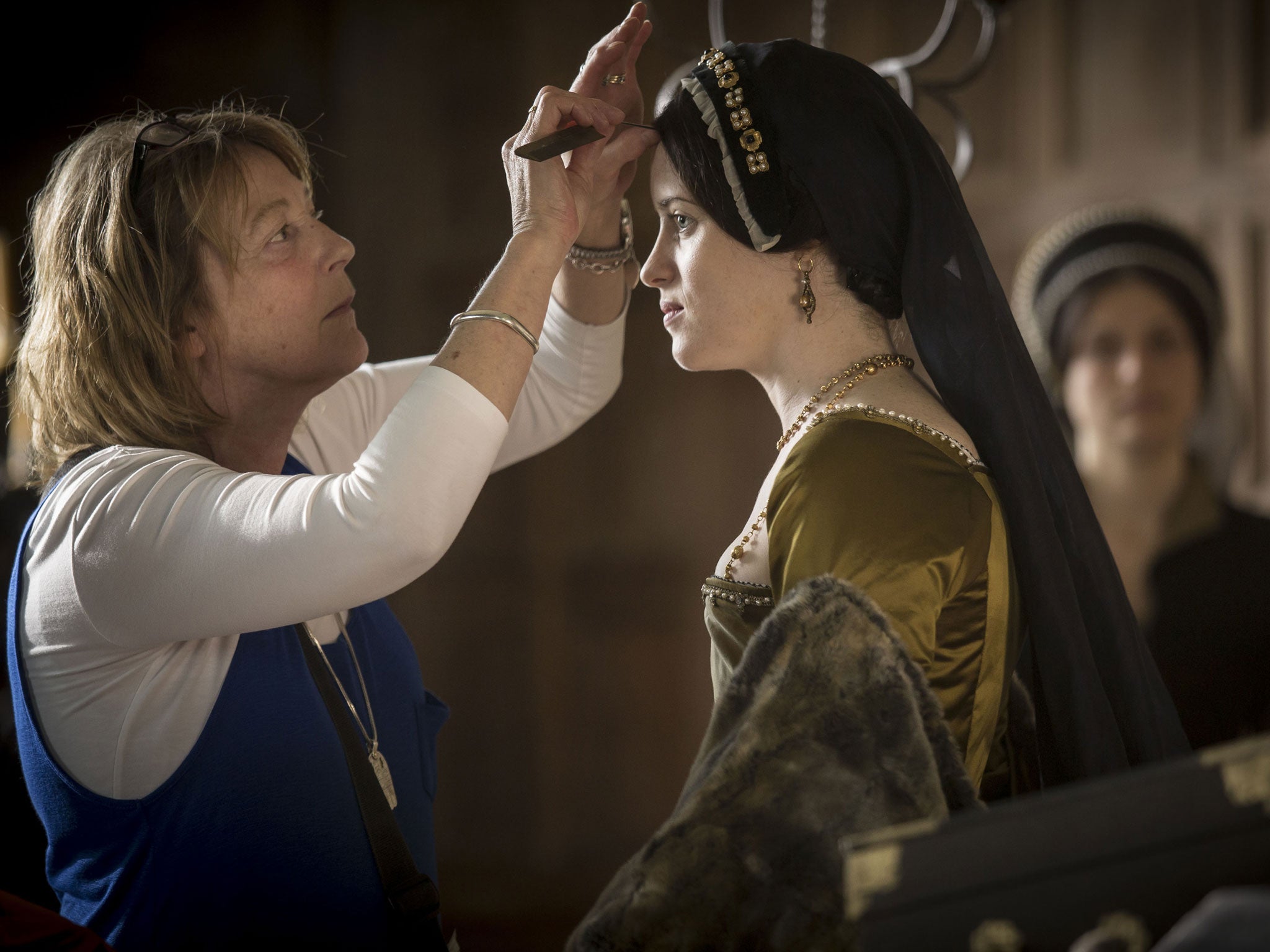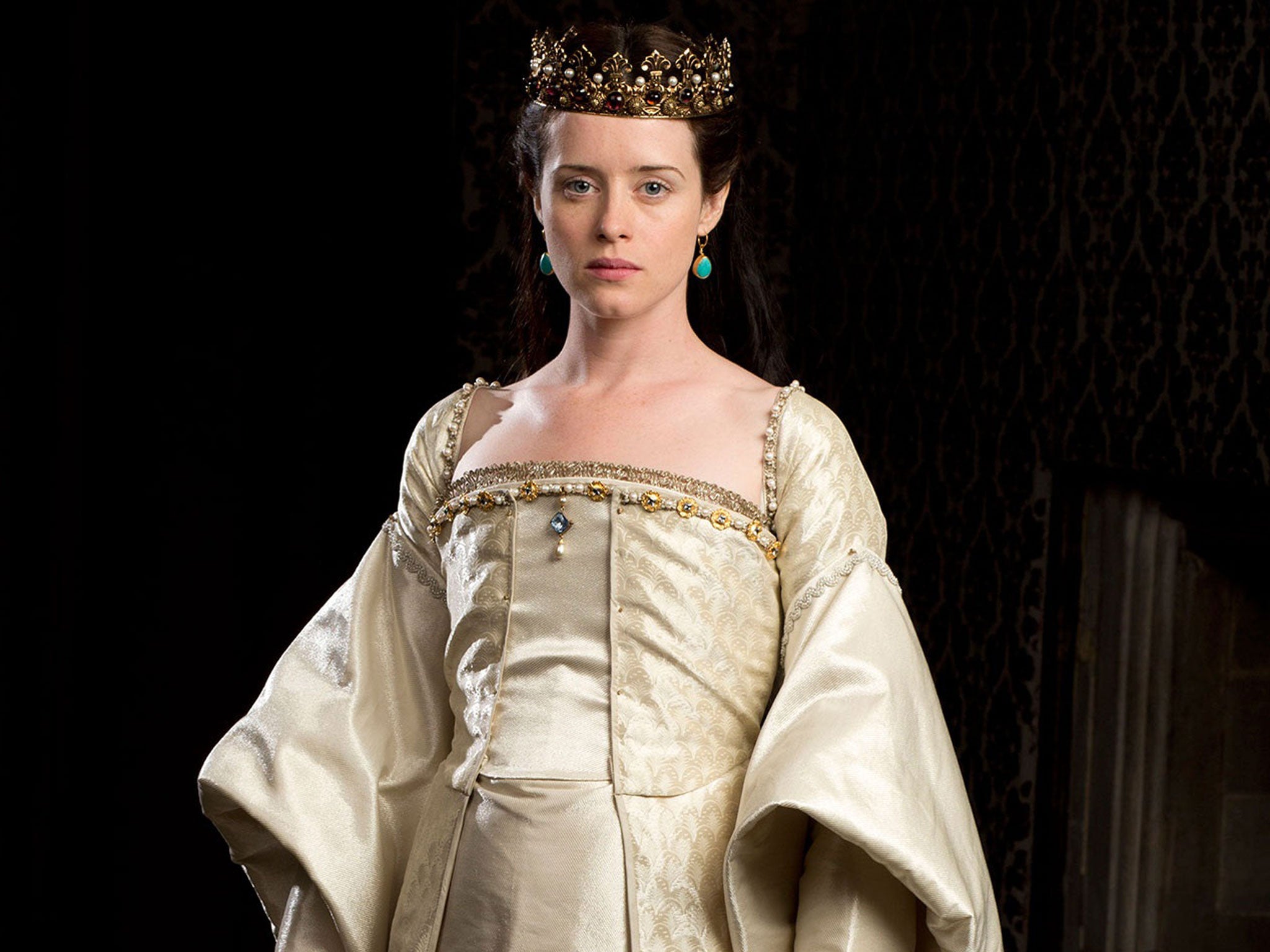Claire Foy interview: The 'Wolf Hall' star on politics in the Tudor court and Hollywood
Foy is unforgettable as doomed queen Anne Boleyn in the six-part BBC adaptation, to be broadcast later this month

Your support helps us to tell the story
From reproductive rights to climate change to Big Tech, The Independent is on the ground when the story is developing. Whether it's investigating the financials of Elon Musk's pro-Trump PAC or producing our latest documentary, 'The A Word', which shines a light on the American women fighting for reproductive rights, we know how important it is to parse out the facts from the messaging.
At such a critical moment in US history, we need reporters on the ground. Your donation allows us to keep sending journalists to speak to both sides of the story.
The Independent is trusted by Americans across the entire political spectrum. And unlike many other quality news outlets, we choose not to lock Americans out of our reporting and analysis with paywalls. We believe quality journalism should be available to everyone, paid for by those who can afford it.
Your support makes all the difference.Claire Foy has been thinking about babies a lot recently. The reason is plain as soon as the 30-year-old walks into her publicist’s office. She’s unmistakably, gloriously pregnant (her first child with new husband and fellow actor Stephen Campbell Moore), and, with my own new parenthood looming imminently, I can’t help gasping in admiration. We then spend a frankly unprofessional amount of our allotted time sharing assorted hopes and fears before agreeing it might be best for our respective careers if we talked shop.
Foy’s latest role, as Anne Boleyn in the BBC’s Wolf Hall, means this segue isn’t as awkward as it might have been: Boleyn’s fate was determined by her fecundity. As to Anne’s psychology, however, she remains a conundrum. It’s no disservice to Foy, Hilary Mantel, or Peters Straughan and Peter Kosminsky, who have written and directed the six-part adaptation of Mantel’s Booker-winning diptych about the life of Thomas Cromwell (Mark Rylance), to suggest that she’s as unknowable at the end of the BBC’s six-part Wolf Hall as she was at the outset.
“The more auditions I did, the more I didn’t know who she was,” Foy concurs. Then she essays an interpretation. “Anne didn’t see any limitations in what she could achieve. She saw that she was very bright and could charm people, even if they hated her. Her real downfall was that she couldn’t leave well enough alone: she was supposed to be silent and graceful and admired, but wouldn’t be that ethereal figure. She wanted to be in the thick of it.”
Scenes of miscarriage would be challenging for any performer, let alone one in early pregnancy. “I’m normally very focused, especially if it’s an emotional scene,” Foy says. “But I was sitting going: there’s nothing happening here, I’m completely dead inside. I thought I’d lost the ability to act. When I did realise I was pregnant and that my hormones were going slightly mad, I couldn’t tell anyone. The costumes were hot and tight, but I couldn’t complain so I was just angry with everyone all the time.”
These supposed failures of temperament and craft aren’t apparent on screen. Rylance’s brooding Cromwell may be the focal point of Wolf Hall, but, watchful and enigmatic, Foy makes a lasting impression as his ally-turned-adversary. Yet, despite having worked with Kosminsky on The Promise, his thoughtful four-part drama about Palestine, Foy is convinced she wasn’t initially considered for Anne – which might sound like actorly self-deprecation, but is true. “I just didn’t imagine her as Anne,” Kosminsky confirms. “It was a failing in me. Anne can be really quite unpleasant, but in the end she has to break your heart and Cromwell’s heart. Claire both pushes the audience away and seduces us.”

She didn’t discuss her interpretation with Mantel (by choice) and felt secure enough to watch the Broadway-bound stage adaptations once filming had wrapped. “They were amazing, but completely different to what we’d been doing. Everyone was chortling because [they were] so funny.”
By contrast, this Wolf Hall is light on gags, as it is on Tudors-style horseplay. No one chomps lustily at a chicken leg or plucks out “Greensleeves” on a lute. Yet its formal austerity is balanced by a rare emotional intimacy and gripping sense of immediacy. “[As a teenager] I watched Pride and Prejudice with my cousins every weekend under the duvet, and made no connection to literature or anything,” Foy recalls. “I was just completely involved. I’d love it if people responded to this in the same way.”
Acting was never an all-consuming ambition for Foy, a shy teenager with “no natural aptitude for anything”, she claims, but a tendency to show off around family and friends. “You’ve got to compete in my family! But no one ever suggested I should put all this irritating behaviour to good use by going to drama school. So I waited until I was 22.”
A year of “pretending to be condoms” at the Oxford School of Drama was followed by the standard-issue cameo in Doctors and then her big break: the title role in the BBC’s Little Dorrit in 2008. “It required so much that just not messing it up was the most important thing,” she says now. Major roles followed in everything from Season of the Witch, a daft fantasy with Nicolas Cage, to Wreckers, a bleak portrait of marital breakdown co-starring Benedict Cumberbatch. She admires the manner in which the latter has adjusted to megastardom, without necessarily coveting it herself. “Benedict was prepared for it. He’d done so much work and I think he wanted it. And fair enough – why not? But he’s not changed at all.”

Watch Apple TV+ free for 7 days
New subscribers only. £8.99/mo. after free trial. Plan auto-renews until cancelled

Watch Apple TV+ free for 7 days
New subscribers only. £8.99/mo. after free trial. Plan auto-renews until cancelled

Foy is simply too sceptical to grin her way through the Hollywood game. Her career will surely be more interesting for it. “The American mentality is lost on me,” she concedes. “You’ve got to want to do anything to make it. [People say] don’t you want to go to Hollywood? Well, no – if you knew what it was like, you wouldn’t either. I’d rather just work.”
Circumstances dictate a clear diary for now but she won’t be off our screens for long. She stonewalls unconvincingly about another, rumoured regal role in The Crown, Peter Morgan’s upcoming Netflix series about Elizabeth II, and will be seen in cinemas this spring in Rosewater, the directorial debut of Daily Show host Jon Stewart. About whom, incidentally, she cannot gush enough. “Jon is so bright, buoyant and eloquent. He really should be President.
“I thought the other day I’d quite like to go into politics,” she muses, “but only because I want everyone to be honest when they’re lying through their fucking teeth.” Foy can’t help being candid, even for the camera. “I’m not a good poser,” she says, gesturing towards an office wall plastered with cover shoots of famous clients en route to being photographed. “I’m too conscious of looking like a dick. That’s the difference between a star and a normal person. I’ve never been someone who walks into a room and people gasp.” Well, to quote Mantel’s Cromwell, “some of these things are true and some of them lies. But they are all good stories”.
‘Wolf Hall’ begins on BBC2 on 21 January at 9pm
Join our commenting forum
Join thought-provoking conversations, follow other Independent readers and see their replies
Comments